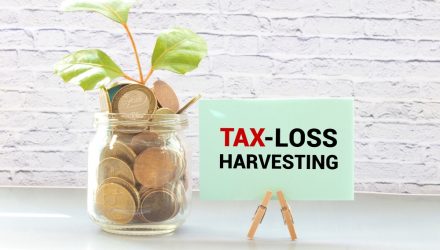While tax-loss harvesting is a tried-and-true strategy for lowering taxes and raising returns, it’s not one that appeals to many investors. After all, not only is the process time-consuming, but it’s also complex.
Tax-loss harvesting involves selling investments at a loss, then using those losses to offset gains in other investments. The investor takes the money from the sale and uses it to buy an investment that fills a similar role in your portfolio.
This last point is what differentiates this strategy from market-timing or locking in losses. It can also potentially increase returns.
According to Vanguard, two trends are bringing tax-loss harvesting to the fore. One, the sustained market volatility has made the strategy more appealing. And two, services like direct indexing are making the strategy more accessible for investors.
See more: “ETF Prime: Dave Nadig Considers Prospective ETF Ideas”
A Major Value to Certain Investors
“Tax-loss harvesting can provide major value, but it depends on your specific situation as an investor,” Vanguard wrote. “And there’s no doubt that automation and volatility increase the potential rewards.”
With direct indexing, high-net-worth investors with significant capital gains can set the frequency at which their accounts scan for harvesting opportunities. That frequency can be monthly, quarterly, or even daily. In general, the more frequent the scans, the better. The differences in tax-loss harvesting opportunities alpha can range from 20 to more than 100 basis points.
A direct indexing service like Vanguard Personalized Indexing can automatically scan portfolios for tax-loss harvesting and rebalancing opportunities year-round. More information about Vanguard Personalized Indexing can be found online.
At Exchange 2023, Ben Hammer, head of client development for Vanguard Personalized Indexing, outlined some benefits of direct indexing. For one thing, the investor owns the individual stocks in a direct indexing account.
So, the investor can tax-loss harvest any of the stocks if they go down “to offset gains somewhere else in your portfolio,” Hammer said.
For more news, information, and analysis, visit the Direct Indexing Channel.

